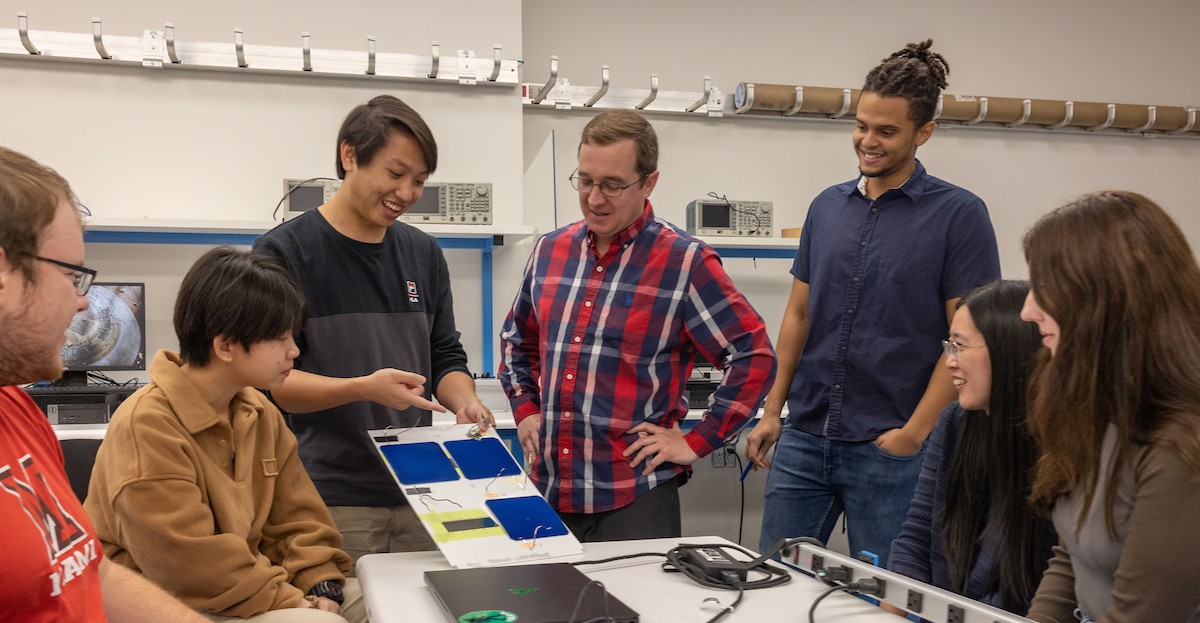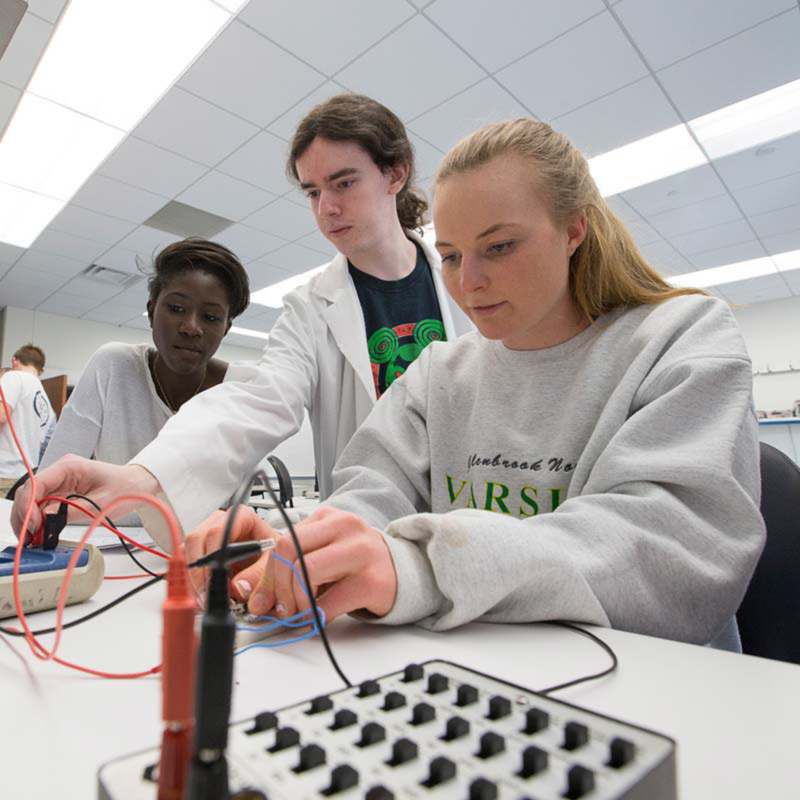Bioinformatics
Acquire the skills necessary to apply computational techniques to advance knowledge of biology and the life sciences.

Prepare for a career that will lead us all into the future with programs in the College of Engineering and Computing (CEC). Whether your interest lies in mechanics, manufacturing, medicine, or software, we have a program that will give you both a broad Miami education and experience you will need in your chosen niche.
Learn how to create products and processes in areas as diverse as pharmaceuticals, energy, environment, and pulp and paper science. Biomedical engineers work in similar areas developing engineering solutions for healthcare-related problems and processes.
Lead the way in developing the next generation systems of mobile apps, virtual reality software, and computational biological analysis. As a computer science or software engineer, you will seek to understand society's needs, and once you do, you will create software systems that make a difference for society. As more of the world runs on software, the need for these professionals will only continue to grow.
Create the machines and systems that power our lives, from circuits to smart grids. In this field, you will combine electrical engineering and computing to design technologies as diverse as robots, cell phones, GPS devices, and computers.
Research, develop, analyze, design, manufacture, and test a wide range of tools and systems. From developing sensors to designing cars, aircraft, and everything in between, these engineers are the minds behind most of the things we depend on every day.
Develop the acumen of an engineer and the ability to lead in other roles beyond traditional engineering. Learn how to integrate the principles of this discipline in fields such as law, business, medicine, so that you can help problem solve for each industry's specific future challenges.
Combine your major in any field with a minor from the College of Engineering and Computing. You may take up to two CEC minors, and while some are open to all students on a first-come, first-served basis, others may have entry requirements or restrictions. Contact the department offering the minor you're interested in to learn more.
Acquire the skills necessary to apply computational techniques to advance knowledge of biology and the life sciences.
Gain the knowledge and skills needed to help organizations, either as employees or external consultants, identify, reliably measure, and faithfully represent the environmental impact of their direct and indirect activities.
Apply engineering principles in hospitals and with medical device companies. Strive to meet the growing technical demands in the healthcare industry.
Learn the fundamentals of software design and development, problem-solving, algorithm design, and a variety of other topics in computer science.
Build the technical foundation and specialized security knowledge needed to protect our digital world.
Develop foundational skills in artificial intelligence and machine learning, including deep learning and generative AI, and apply them across a wide range of disciplines and industries.
Learn the fundamentals of electrical and electronic engineering, which include a variety of industrial applications involving electrical/electronic circuits and microprocessor systems.
Learn basic chemical and environmental engineering principles, concepts, and methodologies and how they are applied to the design and performance of unit operations and processes for energy generation and pollution treatment and control.
Learn to be globally aware, culturally sensitive, and socially conscious. Use your knowledge to design solutions that enhance the lives of and opportunities for people on a local, national, or international level.
Learn the fundamentals of mechanical engineering, including a variety of industrial applications involving product design, experimental analysis, and engineering modeling techniques.
Explore the science and engineering of papermaking through coursework, networking, and work experiences.
Chemistry majors, explore the pulp and paper industry through coursework, networking, and work experiences.
Complement your technical major with additional education in the broad skill set required of process engineers, especially for the chemical and paper industries.
Gain an understanding of FDA regulations, laws, and regulatory document processes related to medical devices, medical device development, and project/facility management.
The following Miami University undergraduate major programs are accredited by the Engineering Accreditation Commission of ABET:
The Computer Science program is accredited by the Computing Accreditation Commission of ABET.
